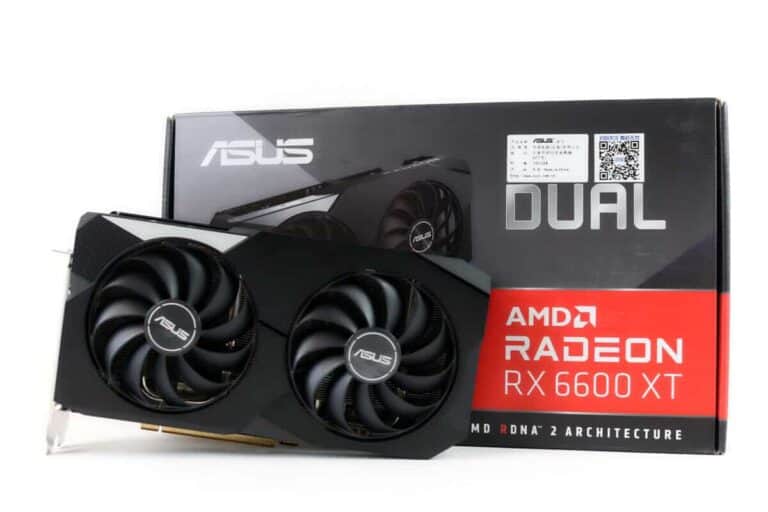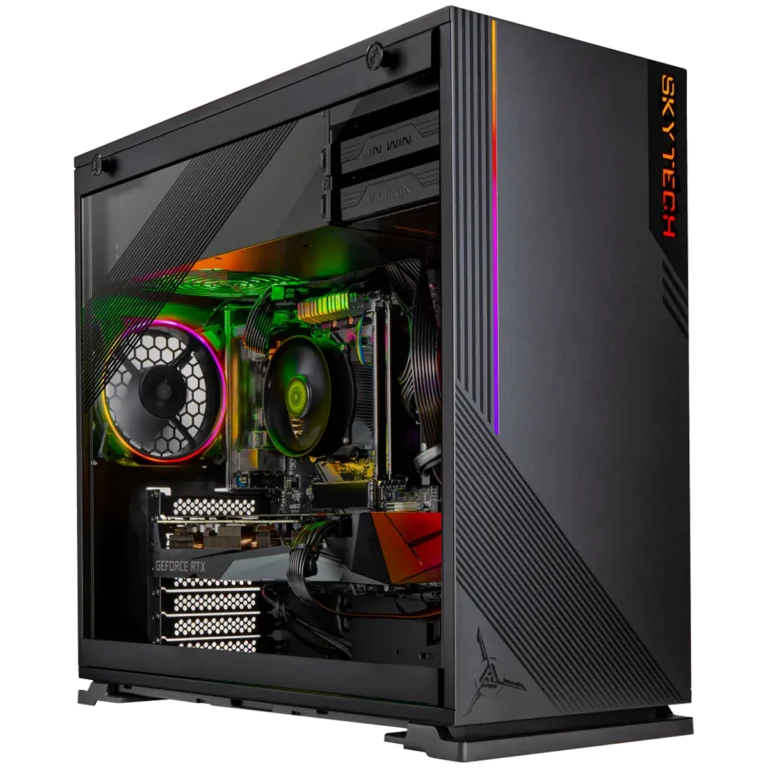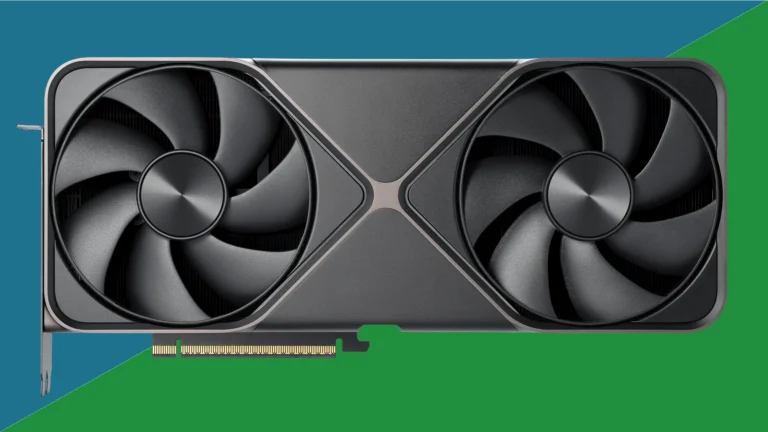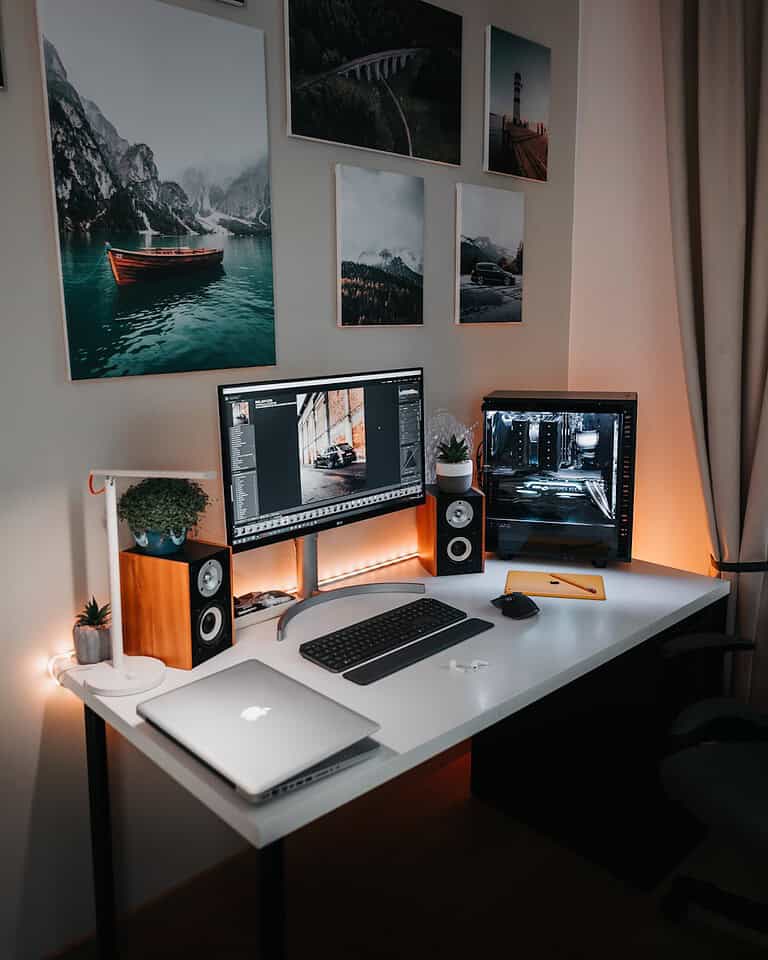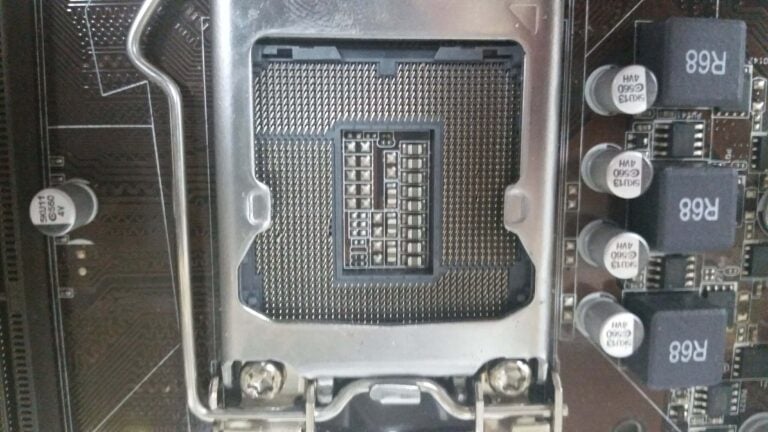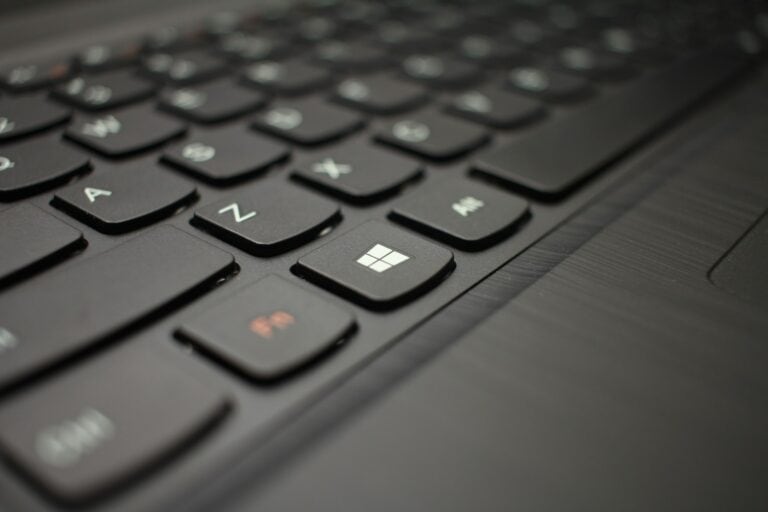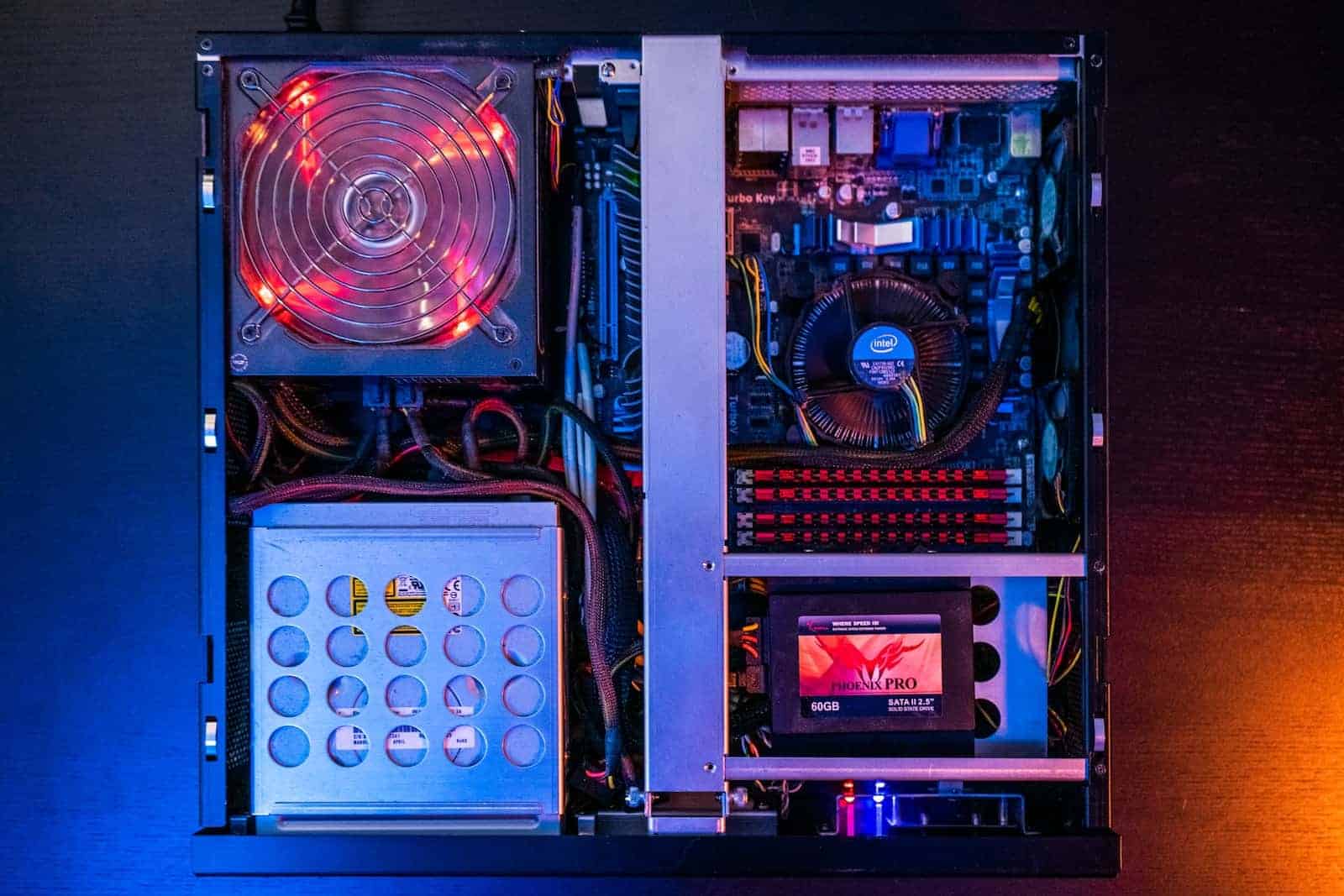
Determining the value of your used computer can be challenging, but knowing the factors that affect its worth and using the right methods can help you get a fair price when you decide to sell. Whether you want to upgrade, declutter, or recover some of your investment, this guide will provide you with the knowledge to evaluate your computer’s value and maximize its resale potential. The worth of your computer depends on factors such as its specifications (CPU, RAM, GPU, storage), age, overall condition, and current market demand.
To get an approximate value, you can check online marketplaces such as eBay or Craigslist to see the selling prices of similar computers. Online valuation tools can also offer estimates, although their accuracy may vary. When selling your used PC, it’s important to understand its value, which is influenced by factors like its specifications, market demand, and condition. To determine a realistic price, it’s important to have a good grasp of the technical specifications, current market trends, and effective sales strategies for your used computer. Taking this well-rounded approach will help you establish a realistic price and find the right buyer.

Unveiling Your Computer’s Value
Determining the worth of your used computer involves considering various factors. It’s more than just its age; specifications, condition, and market demand all play crucial roles.
Key Factors Affecting Value
| Factor | Description | Impact on Value |
|---|---|---|
| Specifications | Processor (CPU), RAM, graphics card (GPU), storage capacity, etc. | Higher-end specs generally command a higher value. |
| Age | How old is the computer? | Newer computers typically have a higher value than older ones. |
| Condition | Physical appearance, functionality of components, any damage or wear and tear. | Computers in excellent condition with all components working properly are worth more. |
| Market Demand | Popularity of the model, current trends in the used computer market. | High demand for specific models or components can increase the value. |
Methods for Estimating Value
- Online Marketplaces: Check websites like eBay or Craigslist to see what similar computers are selling for. Pay attention to completed listings to get a realistic idea of the actual selling price.
- Online Valuation Tools: Several websites offer tools to estimate your computer’s value based on its specifications. However, these estimates might not be entirely accurate, so it’s best to use them as a starting point.
- Local Computer Stores: Some computer stores or repair shops may offer trade-in or buyback programs. While they might not offer the highest price, it’s a convenient option for quick disposal.

Tips for Increasing Value
- Clean and Maintain: Thoroughly clean the computer’s exterior and interior, removing any dust or debris.
- Update Software: Ensure the operating system and drivers are up-to-date.
- Gather Accessories: Include any original accessories, such as the power cord, keyboard, and mouse, to increase the value.
- Take Good Photos: Capture clear, well-lit photos of the computer from multiple angles to showcase its condition.
- Write a Detailed Description: Accurately list all specifications, including any upgrades or modifications. Mention any cosmetic or functional issues honestly.
Pricing Your PC Right: A Seller’s Guide
Factors Affecting Value
Many things play a role in how much your used PC is worth. Some key factors include:
- Specs: The processor, RAM, storage, and graphics card are the most important specs. A newer, more powerful PC will generally fetch a higher price.
- Condition: Is your PC like new or showing its age? Scratches, dents, or internal dust can lower the value.
- Age: Electronics depreciate over time. A PC from last year will be worth more than one from five years ago, even with similar specs.
- Demand: Some brands or models are more sought after than others. This can influence the price, especially for gaming PCs or those with unique features.
- Included Accessories: Do you have the original box, manuals, and accessories? These can add value to the package.
Researching the Market
Before setting a price, it’s crucial to research similar PCs on the market. Check online marketplaces like eBay, Facebook Marketplace, and Craigslist to see what others are asking for comparable models. Look at both active listings and recently sold items to get a good idea of the going rate.

Pricing Strategies
- Competitive Pricing: Price your PC slightly below similar listings to attract buyers quickly.
- Premium Pricing: If your PC is in excellent condition with top-notch specs, you might try pricing it slightly higher, especially if it’s a sought-after model.
- Bundle Deals: Consider offering a bundle with accessories like a monitor, keyboard, and mouse to increase the overall value.
- Negotiation: Be prepared to negotiate with potential buyers, but set a minimum price you’re willing to accept.
Where to Sell Your Used PC
- Online Marketplaces: eBay, Facebook Marketplace, and Craigslist are popular options, offering a wide audience but varying fees and potential risks.
- Local Tech Stores: Some stores buy used electronics, but they often offer lower prices than you could get selling directly to a buyer.
- PC Enthusiast Forums: These forums can connect you with buyers who specifically seek used PCs, potentially fetching a higher price.
Additional Tips
- Clean and Test Your PC: Ensure your PC is clean, inside and out, and that all components are working properly.
- Take High-Quality Photos: Good photos showcasing your PC’s condition can attract more buyers.
- Write a Detailed Description: Be honest and thorough in your listing, highlighting the specs, condition, and any included accessories.
Estimating Your PC’s Value
Here’s a rough estimate of what you might expect for different PC types:
| PC Type | Age (Years) | Condition | Estimated Value Range |
|---|---|---|---|
| Budget PC | 1-2 | Excellent | $150-$300 |
| Budget PC | 3-4 | Good | $100-$200 |
| Mid-Range PC | 1-2 | Excellent | $300-$500 |
| Mid-Range PC | 3-4 | Good | $200-$350 |
| High-End PC | 1-2 | Excellent | $500-$1000+ |
| High-End PC | 3-4 | Good | $350-$700+ |
Remember, these are just estimates. The actual value will depend on the specific specs, brand, demand, and your negotiation skills.
Understanding the Basics of PC Valuation
The first step in determining the value of your used PC is to assess its hardware. The age, brand, and specifications of components like the CPU, GPU, RAM, and storage play a crucial role in valuation. Generally, newer and higher-spec components fetch a higher price. For example, a PC with a latest-generation Intel or AMD processor is likely to be more valuable than one with an older, less powerful CPU.
Look on a website like Ebay or PCPartpicker to determine the value of your parts.
Market Trends and Demand
The value of your PC is also influenced by current market trends. If there’s a high demand for gaming PCs and your computer has a powerful graphics card, you might be able to sell it for a premium. Conversely, if the market is flooded with similar models, you may need to lower your price to stay competitive.
Condition and Presentation
The physical condition of your PC significantly affects its value. A well-maintained, clean computer with no visible damage or wear will naturally attract higher offers. If you’ve kept your PC in great shape, make sure to highlight this when selling. Additionally, including peripherals like a monitor, keyboard, and mouse can sometimes increase the overall value.
Pricing Strategies
When setting a price, consider how much you originally paid and how the PC’s value has depreciated over time. A common approach is to start at about half the original price, then adjust based on the factors mentioned above. It’s also worth checking online marketplaces to see what similar models are selling for.
Enhancing the Value
There are a few tricks to potentially increase your PC’s resale value. Upgrading certain components, like adding more RAM or a better graphics card, can make it more appealing. Cleaning the PC inside and out, and ensuring the software is up to date and running smoothly, can also add value.
Where to Sell
Choosing the right platform to sell your PC is crucial. Online marketplaces like eBay, Craigslist, or specialized tech forums can be good options. Consider the audience on each platform and tailor your listing to appeal to them.
Negotiating the Sale
Be prepared for negotiation. Buyers will often try to haggle, so set your initial asking price slightly higher than the minimum you’re willing to accept. Be honest about any flaws or issues with the PC to avoid disputes later.
Transfer of Ownership
Once you’ve agreed on a price, ensure a smooth transfer of ownership. This includes wiping your personal data from the PC and possibly providing the buyer with original software licenses or recovery tools.
Avoiding Scams
Be cautious of potential scams. Use secure payment methods and avoid shipping the PC before receiving payment. If selling locally, meet in a public place and consider bringing someone with you for safety.
FAQs
Is there any value in old desktop computers?
Absolutely, even older desktop computers can retain value. They can still handle basic tasks like web browsing, document editing, or media playback. Certain vintage models might even be sought after by collectors or enthusiasts. Additionally, individual components inside an old computer can often be salvaged and sold separately.
How do I know if my computer is worth buying? / How do I know if my used computer is good?
When evaluating a used computer, consider its specifications in relation to your intended use, its overall condition, and its price. Ensure the specs meet your needs and the price aligns with similar models in the market. Thoroughly inspect the computer for any physical damage, ensure all components function correctly, and verify it doesn’t overheat during use. Additionally, check that the software is up-to-date.
How do you check how much a computer has been used?
While pinpointing exact usage is tricky, there are clues to look for: the physical condition, the hard drive’s SMART data (which provides insights into its health and usage), and the event logs (which might show power-on/off times, but can be cleared).
Is it safe to buy a second hand PC?
Yes, buying a used PC can be safe if you exercise caution. Choose reputable sellers, thoroughly inspect the computer, and ensure all personal data has been wiped. If possible, seek a warranty or return policy for added peace of mind.
How many years does a good PC last?
With proper care, a well-built PC can last 5-8 years or even longer, depending on its components and how it’s used. However, as technology evolves, you might consider upgrading sooner to keep up with the latest software and games.
How do I determine the specifications of my used PC?
Utilize the system information tools built into your operating system. On Windows, press Windows key + Pause/Break or search for “System Information.” On macOS, click the Apple icon > About This Mac.
Should I upgrade my PC before selling it?
Generally, upgrading before selling isn’t recommended, as the investment might not translate to a significantly higher selling price. Instead, prioritize cleaning the PC, ensuring it functions well, and accurately listing its specs.
How do I ensure my personal data is safe when selling my PC?
Perform a factory reset or secure erase of your hard drive to eliminate all personal data. On Windows, use the “Reset this PC” option. On macOS, use Disk Utility to erase the drive securely.
Can I sell a PC with issues or damaged components?
You can, but be transparent about any issues or damage in your listing. This will help manage buyer expectations and avoid potential disputes. The selling price should reflect the PC’s condition.
Is it better to sell a PC whole or part it out?
Selling the PC whole is generally easier and faster. However, if you have time and technical skills, parting it out might yield a higher profit, especially if certain components are in high demand.
How do I price my used PC competitively?
Research recent sales of similar PCs on platforms like eBay or Craigslist. Consider the age, condition, and specs of your PC, and adjust your price accordingly. Be prepared to negotiate.
What payment methods are safest when selling a PC?
Cash (for local pickups) and PayPal are generally considered the safest options. Avoid accepting checks or money orders, as they can be fraudulent.
How do I handle shipping for a sold PC?
Pack the PC securely in its original box if possible, using plenty of cushioning material. Choose a reliable shipping carrier with insurance and tracking. Provide the buyer with the tracking number once shipped.
Can I sell an old PC that’s several years old?
Yes, you can still sell an older PC, even if it’s several years old. Be honest about its age and capabilities in your listing, and set a realistic price.
What should I include in my sale listing?
Include detailed and accurate information in your listing, such as:
- Specifications: CPU, RAM, GPU, storage, operating system, etc.
- Condition: Any cosmetic or functional issues.
- Age: How old is the PC?
- Included accessories: Monitor, keyboard, mouse, etc.
- Clear photos: Take well-lit pictures from multiple angles.
- Reasonable price: Research similar listings to set a competitive price.
- Payment and shipping details: Specify accepted payment methods and shipping options.

